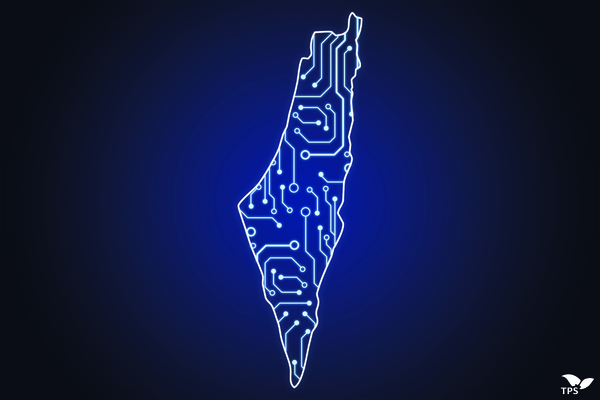For the first time, high-tech exports made up more than half of all Israeli exports, standing at 54%.
By TPS
Over the past year, the Israeli high-tech sector saw record levels of capital raised, but its shares on the NASDAQ fell by about 10%, while Israeli high-tech exports exceeded the 50% threshold for the first time, the Israel Innovation Authority’s annual report on the state of high-tech shows.
The report, released on Wednesday, further shows that employment in the industry rose above 10% of the Israeli workforce, and the growth in employment in the high tech sector stood at 8%, as opposed to 1% in the economy as a whole, and computer science is the popular undergraduate profession, with around 11% of the student body.
While the growth is impressive, “the challenges ahead are great and significant,” the report says, noting that while Israel is a world leader in cooperation between academia and industry, only 15% of such collaborations are with Israeli companies.
The report highlighted the 88 mega-fundraising rounds of over $100 million during the past year, but the market value of Israeli technology companies on NASDAQ fell during the same period by around 10%.
For the first time, high-tech exports made up more than half of all Israeli exports, standing at 54%.
As for employment breakdowns, the report indicated a 6% decline in the number of ultra-Orthodox employees in high-tech and stagnation in the rate of Arab employees.
Some 19% of Israelis aged 30-34 are employed in tech positions in all branches of the market. The rate of Israelis aged 45-49 employed in high-tech doubled over the past decade, from 6% percent in 2012 to nearly 12% in 2021.
Only 8% of those employed in high-tech are at companies defined as “young startups”.
‘Israel can’t bury its head in the sand’
Furthermore, Israel is the first place in the OECD rankings for R&D expenditure as a percentage of GDP but takes last place in terms of government expenditure in R&D as a percentage of the overall investment in the field.
In 2021, Israel dropped to 15th place in the Global Innovation Index, down from 10th place in 2019.
Minister of Innovation, Science, and Technology Orit Farkash-HaCohen stated that “Israeli high-tech is an asset to the Israeli economy, and its success must not be taken for granted. Preserving industry achievements for years to come is a critical national challenge.”
“The Innovation Authority’s report provides an important reflection on trends in the industry,” and accordingly Israel has “promoted the goals of increasing the number of Israelis in high-tech, created an educational program for Israeli children in the world of technology and generated support for research and development bodies in Israel,” Farkash-Hacohen added.
“We are currently formulating a national plan to promote artificial intelligence, with the support of the Minister of Finance. In addition, higher education entities face a major challenge in improving the academic infrastructure tailored to the needs of the industry. Much work is still ahead of us,” the minister continued.
“The high-tech industry is an industry that faces tough competition from many countries. We must continue to cultivate a supportive environment for this industry, and we will continue to do so in the future,” she said.
Dr. Ami Appelbaum, Chairman of the IAA, warned that “Israel can’t bury its head in the sand and expect that, without long-term investment in high-tech, the economy’s main export sector will continue to lead in the global arena.”
“It is evident in the country’s decline in the Global Innovation Index, and in indices that examine the resilience of academia. Past national investments allowed Israel to claim its position as a global leader in the area of innovation and the country must continue to maintain this position,” he said.




